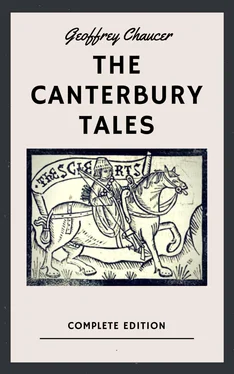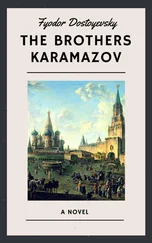Like his great successor, Spencer, it was the fortune of Chaucer to live under a splendid, chivalrous, and high-spirited reign. 1328 was the second year of Edward III; and, what with Scotch wars, French expeditions, and the strenuous and costly struggle to hold England in a worthy place among the States of Europe, there was sufficient bustle, bold achievement, and high ambition in the period to inspire a poet who was prepared to catch the spirit of the day. It was an age of elaborate courtesy, of high- paced gallantry, of courageous venture, of noble disdain for mean tranquillity; and Chaucer, on the whole a man of peaceful avocations, was penetrated to the depth of his consciousness with the lofty and lovely civil side of that brilliant and restless military period. No record of his youthful years, however, remains to us; if we believe that at the age of eighteen he was a student of Cambridge, it is only on the strength of a reference in his "Court of Love", where the narrator is made to say that his name is Philogenet, "of Cambridge clerk;" while he had already told us that when he was stirred to seek the Court of Cupid he was "at eighteen year of age." According to Leland, however, he was educated at Oxford, proceeding thence to France and the Netherlands, to finish his studies; but there remains no certain evidence of his having belonged to either University. At the same time, it is not doubted that his family was of good condition; and, whether or not we accept the assertion that his father held the rank of knighthood — rejecting the hypotheses that make him a merchant, or a vintner "at the corner of Kirton Lane" — it is plain, from Chaucer's whole career, that he had introductions to public life, and recommendations to courtly favour, wholly independent of his genius. We have the clearest testimony that his mental training was of wide range and thorough excellence, altogether rare for a mere courtier in those days: his poems attest his intimate acquaintance with the divinity, the philosophy, and the scholarship of his time, and show him to have had the sciences, as then developed and taught, "at his fingers' ends." Another proof of Chaucer's good birth and fortune would he found in the statement that, after his University career was completed, he entered the Inner Temple - - the expenses of which could be borne only by men of noble and opulent families; but although there is a story that he was once fined two shillings for thrashing a Franciscan friar in Fleet Street, we have no direct authority for believing that the poet devoted himself to the uncongenial study of the law. No special display of knowledge on that subject appears in his works; yet in the sketch of the Manciple, in the Prologue to the Canterbury Tales, may be found indications of his familiarity with the internal economy of the Inns of Court; while numerous legal phrases and references hint that his comprehensive information was not at fault on legal matters. Leland says that he quitted the University "a ready logician, a smooth rhetorician, a pleasant poet, a grave philosopher, an ingenious mathematician, and a holy divine;" and by all accounts, when Geoffrey Chaucer comes before us authentically for the first time, at the age of thirty-one, he was possessed of knowledge and accomplishments far beyond the common standard of his day.
Chaucer at this period possessed also other qualities fitted to recommend him to favour in a Court like that of Edward III. Urry describes him, on the authority of a portrait, as being then "of a fair beautiful complexion, his lips red and full, his size of a just medium, and his port and air graceful and majestic. So," continues the ardent biographer, — "so that every ornament that could claim the approbation of the great and fair, his abilities to record the valour of the one, and celebrate the beauty of the other, and his wit and gentle behaviour to converse with both, conspired to make him a complete courtier." If we believe that his "Court of Love" had received such publicity as the literary media of the time allowed in the somewhat narrow and select literary world — not to speak of "Troilus and Cressida," which, as Lydgate mentions it first among Chaucer's works, some have supposed to be a youthful production — we find a third and not less powerful recommendation to the favour of the great co- operating with his learning and his gallant bearing. Elsewhere <2> reasons have been shown for doubt whether "Troilus and Cressida" should not be assigned to a later period of Chaucer's life; but very little is positively known about the dates and sequence of his various works. In the year 1386, being called as witness with regard to a contest on a point of heraldry between Lord Scrope and Sir Robert Grosvenor, Chaucer deposed that he entered on his military career in 1359. In that year Edward III invaded France, for the third time, in pursuit of his claim to the French crown; and we may fancy that, in describing the embarkation of the knights in "Chaucer's Dream", the poet gained some of the vividness and stir of his picture from his recollections of the embarkation of the splendid and well- appointed royal host at Sandwich, on board the eleven hundred transports provided for the enterprise. In this expedition the laurels of Poitiers were flung on the ground; after vainly attempting Rheims and Paris, Edward was constrained, by cruel weather and lack of provisions, to retreat toward his ships; the fury of the elements made the retreat more disastrous than an overthrow in pitched battle; horses and men perished by thousands, or fell into the hands of the pursuing French. Chaucer, who had been made prisoner at the siege of Retters, was among the captives in the possession of France when the treaty of Bretigny — the "great peace" — was concluded, in May, 1360. Returning to England, as we may suppose, at the peace, the poet, ere long, fell into another and a pleasanter captivity; for his marriage is generally believed to have taken place shortly after his release from foreign durance. He had already gained the personal friendship and favour of John of Gaunt, Duke of Lancaster, the King's son; the Duke, while Earl of Richmond, had courted, and won to wife after a certain delay, Blanche, daughter and co-heiress of Henry Duke of Lancaster; and Chaucer is by some believed to have written "The Assembly of Fowls" to celebrate the wooing, as he wrote "Chaucer's Dream" to celebrate the wedding, of his patron. The marriage took place in 1359, the year of Chaucer's expedition to France; and as, in "The Assembly of Fowls," the formel or female eagle, who is supposed to represent the Lady Blanche, begs that her choice of a mate may be deferred for a year, 1358 and 1359 have been assigned as the respective dates of the two poems already mentioned. In the "Dream," Chaucer prominently introduces his own lady-love, to whom, after the happy union of his patron with the Lady Blanche, he is wedded amid great rejoicing; and various expressions in the same poem show that not only was the poet high in favour with the illustrious pair, but that his future wife had also peculiar claims on their regard. She was the younger daughter of Sir Payne Roet, a native of Hainault, who had, like many of his countrymen, been attracted to England by the example and patronage of Queen Philippa. The favourite attendant on the Lady Blanche was her elder sister Katherine: subsequently married to Sir Hugh Swynford, a gentleman of Lincolnshire; and destined, after the death of Blanche, to be in succession governess of her children, mistress of John of Gaunt, and lawfully-wedded Duchess of Lancaster. It is quite sufficient proof that Chaucer's position at Court was of no mean consequence, to find that his wife, the sister of the future Duchess of Lancaster, was one of the royal maids of honour, and even, as Sir Harris Nicolas conjectures, a god-daughter of the Queen — for her name also was Philippa.
Читать дальше












